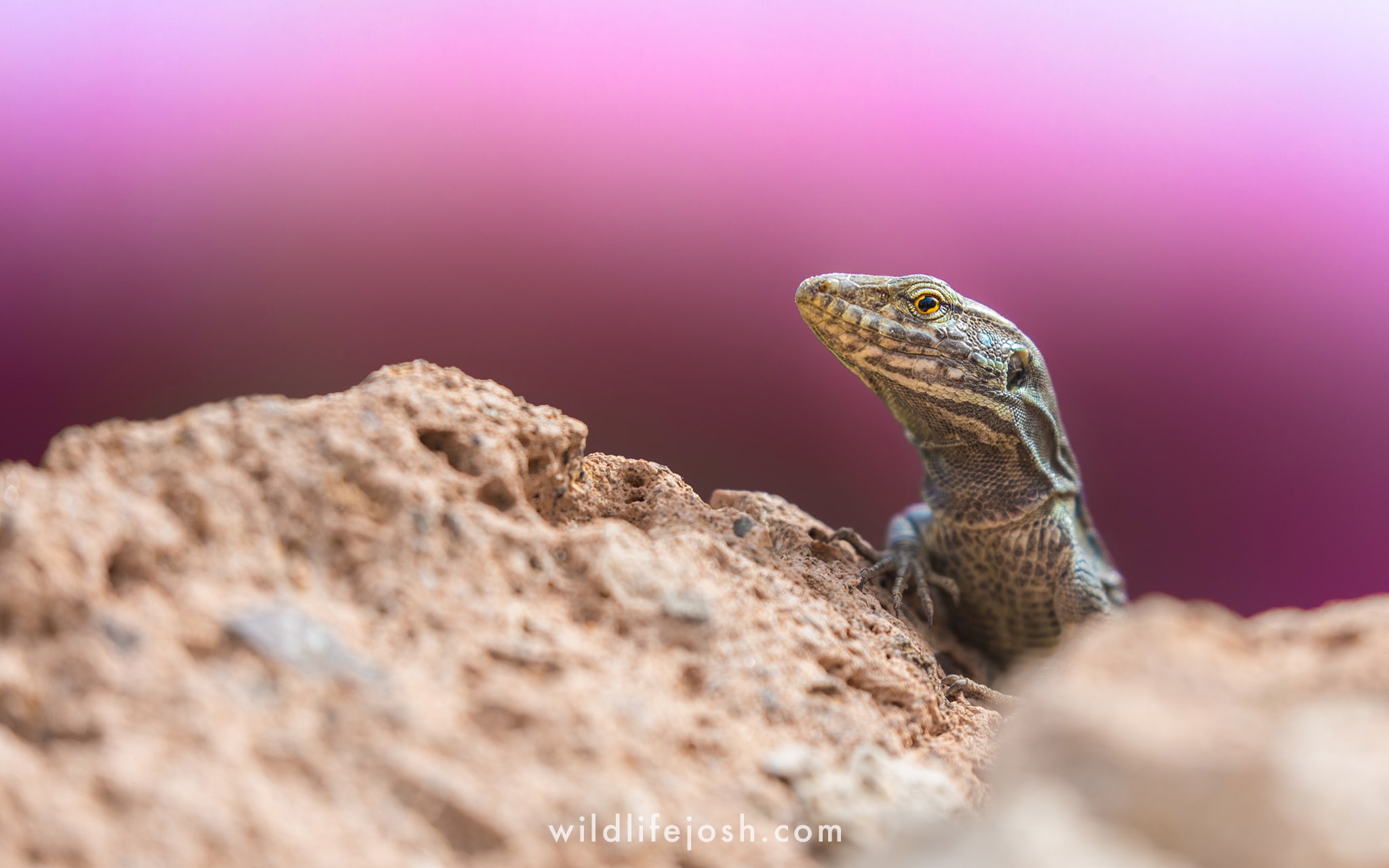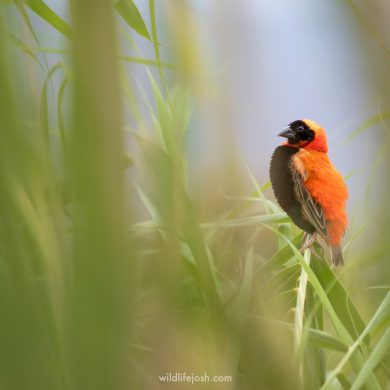When photographing wildlife – much like hiring a new employee or going on a date with someone you met online – it’s essential to do a background check. What is behind the animal that you’re photographing?
The background can completely make or break an image. It’s essentially the canvas that you’re painting the rest of your picture on top of. By paying more attention to what’s going on back there you can vastly improve your images.
I’m going to show you four photos. They all feature the same Tenerife Lizard and were all taken a handful of seconds apart. The only thing I changed between each image was my physical position in relation to the lizard, giving me an entirely different background each time. Let’s have a look!
SHOT #1: BLUE BACKGROUND
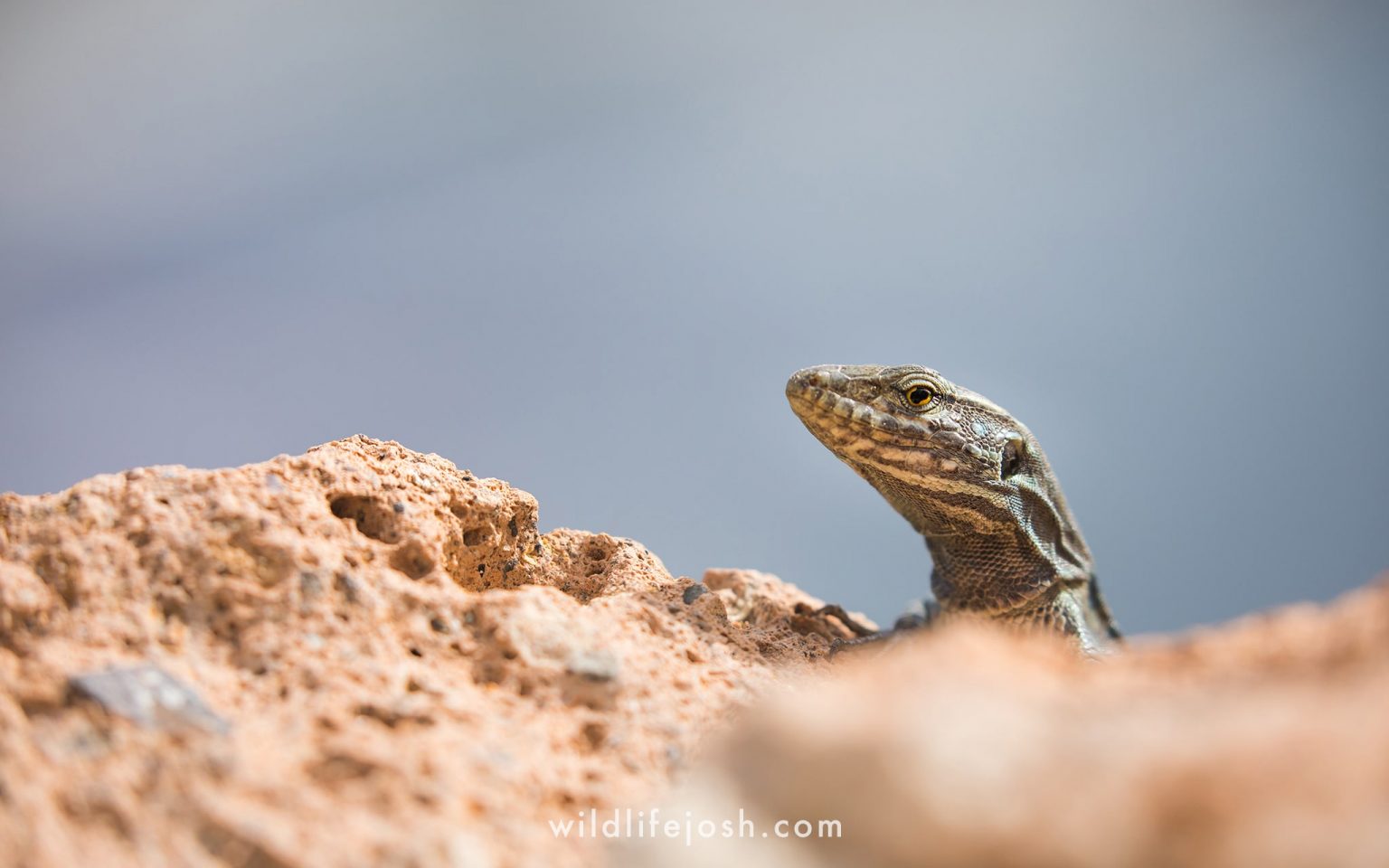
In this first shot, my camera was slightly below the lizard’s eye level. The background of the image is a moody blue sky, giving the image quite a clean and simple look. Most of the time I will take a quick image like this when I first find a subject (in case the animal disappears) before experimenting with different positions and angles. Thankfully this lizard was happy to sit still for a while.
SHOT #2: DARK BACKGROUND
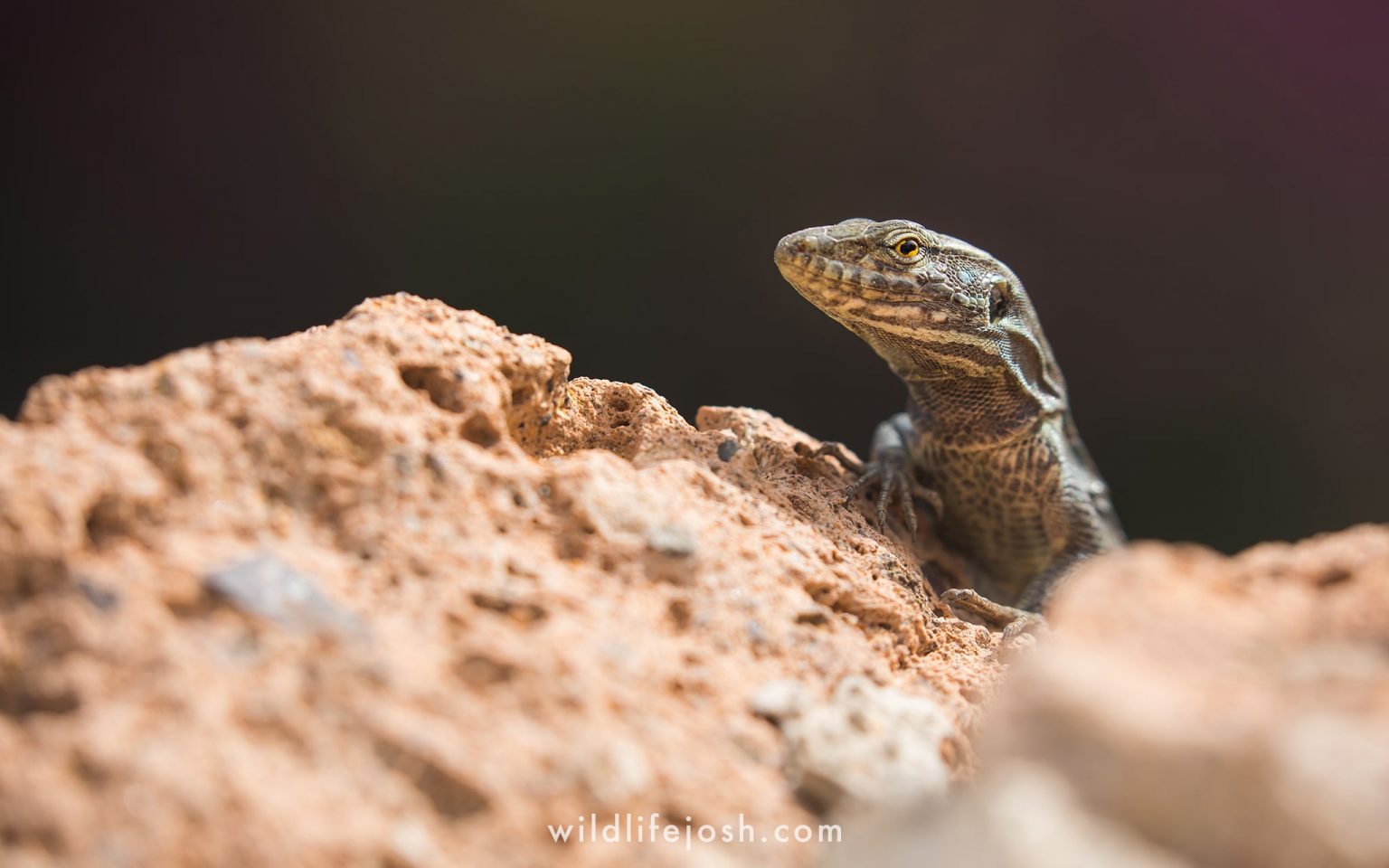
For my next shot I raised my camera higher, coming above the lizard’s eye level and shooting down towards the ground behind it. It’s hard to tell with this shallow depth of field, but the dark background here was provided by the base of a bush and the ground around it.
SHOT #3: PURPLE BACKGROUND
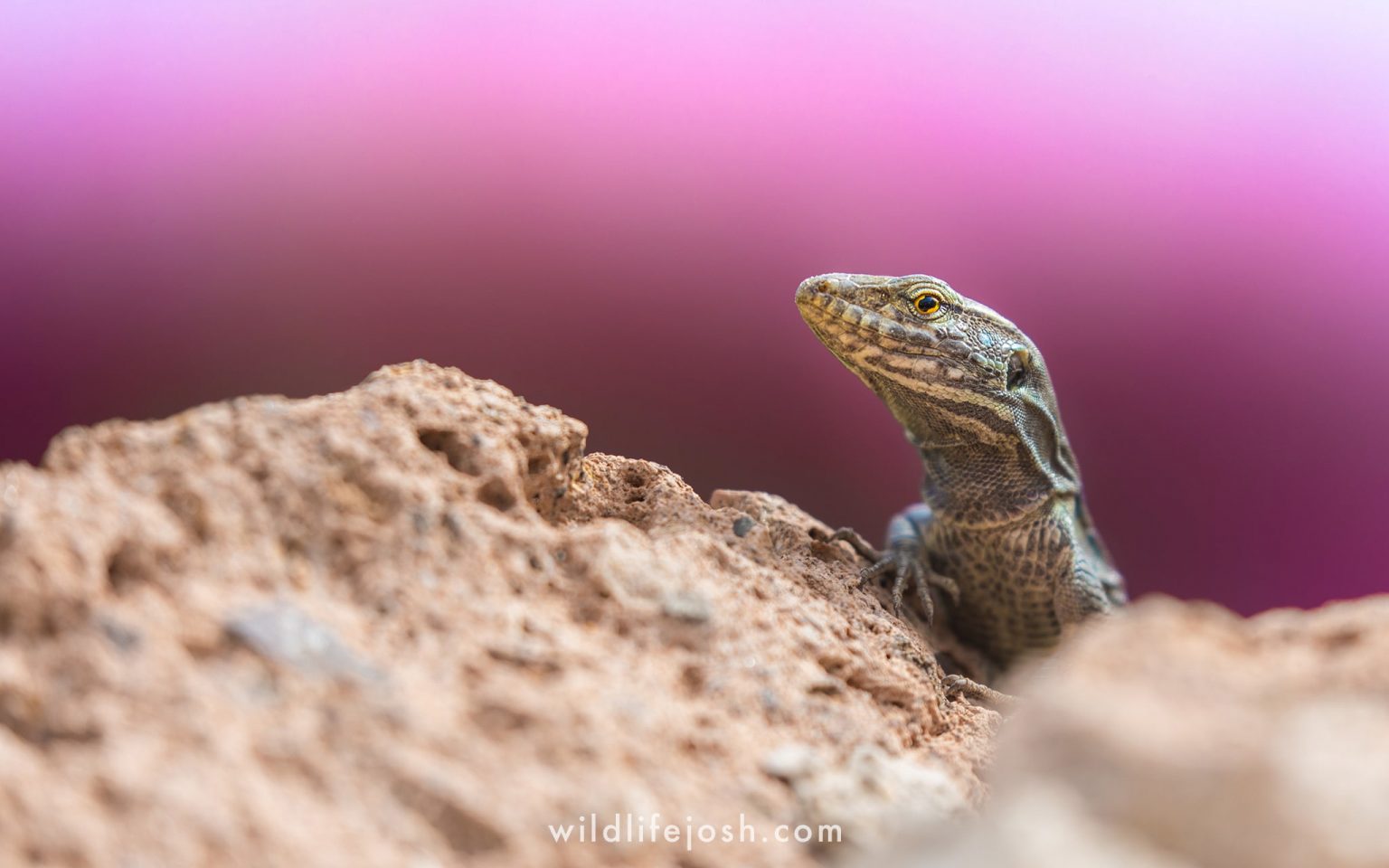
This is my favourite from this little series. I lowered my camera again until I was roughly eye level with the lizard, lining it up with the vibrant purple of a Bougainvillea bush behind. This isn’t a very natural-looking photograph, but it’s certainly eye-catching.
SHOT #4: GREEN BACKGROUND
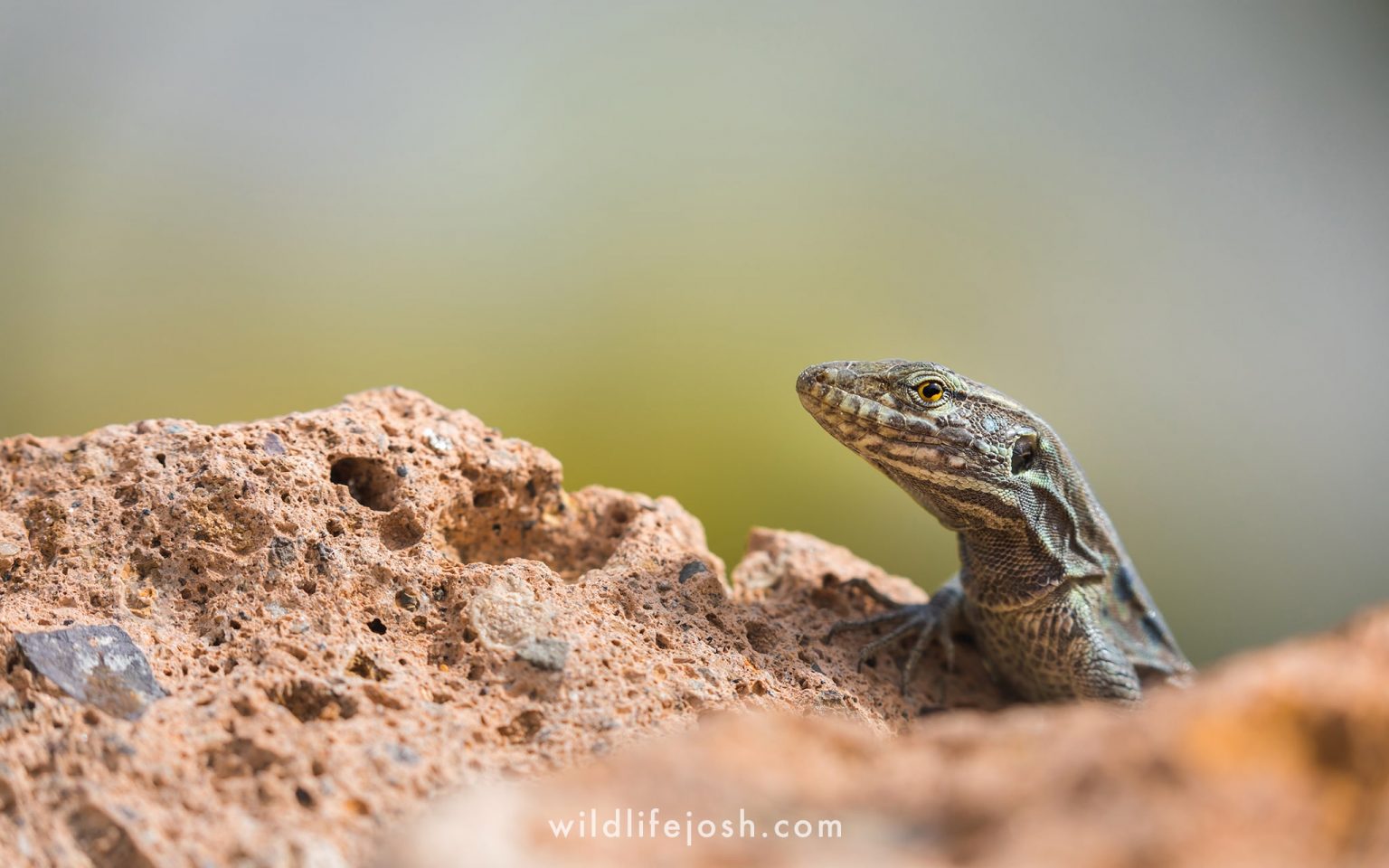
Finally, I moved to the right slightly (still staying at eye level) to get the top of a different bush in the background. This green bush provided a much more natural background than the previous image, helping keep a little more focus on the subject itself.
ALL TOGETHER NOW
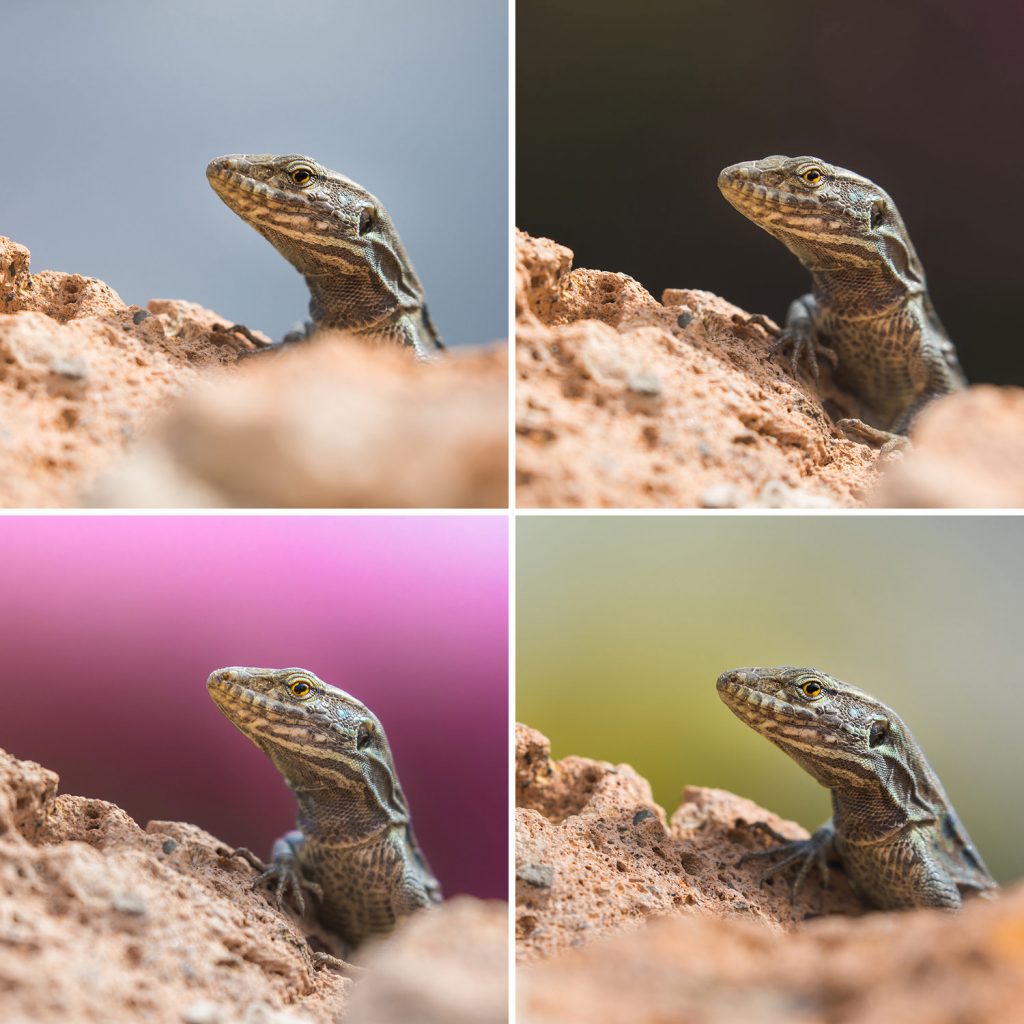
And here are the four backgrounds side by side. There’s not really a “right” or a “wrong” image, it’s just down to personal preference. But I hope you see how small movements can change an image so drastically!
Your homework is to go and try this for yourself. Next time you’re photographing an animal, take a moment to think about the background. If you do try this, please tag @wildlifejosh on Instagram so I can see them!


